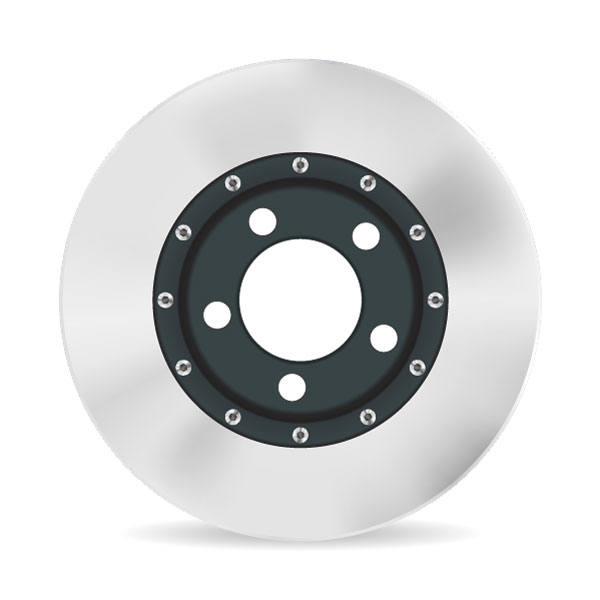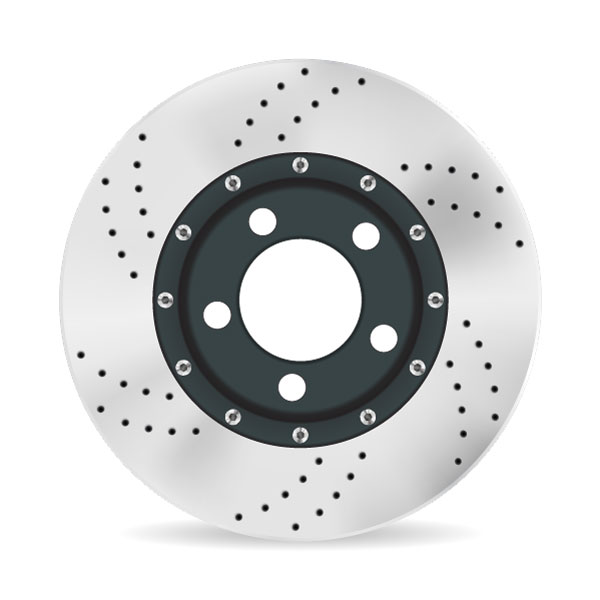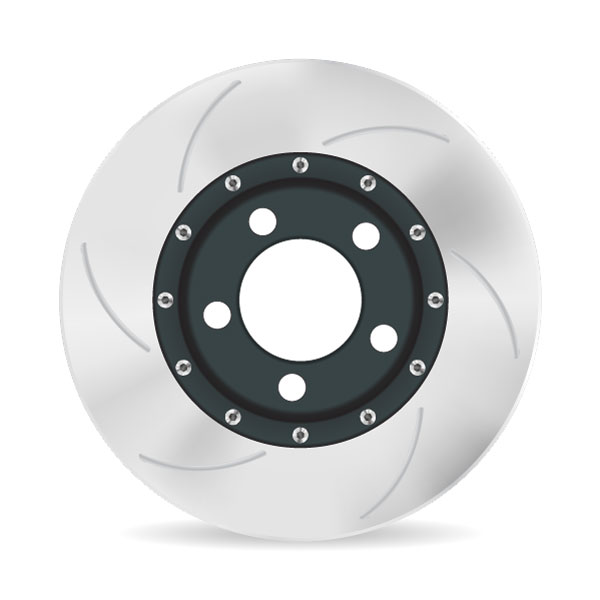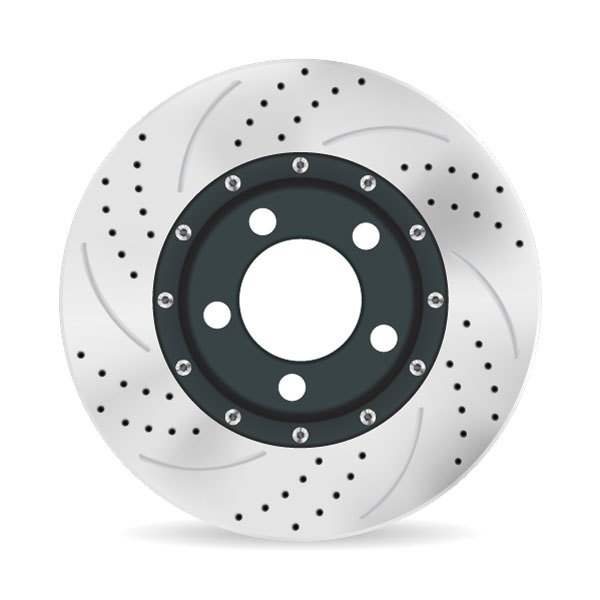If you are like most American drivers, you will apply your brakes around 200 times a day. That is 200 times you entrust your safety to 40+ components to bring you to a stop. Some of the main components in the stopping effectiveness of your vehicle are your rotors, which work to dissipate heat created from your brake pads.
What Are Rotors?
The rotors are the circular discs that are connected to each wheel (two in the front and two in the back). Rotors are designed to turn motion (kinetic energy) into thermal energy (heat). As the calipers squeeze your brake pads together, the rotors’ large surface area creates friction. This friction resists the spin of the wheel, which slows it’s rotation and movement of the car.
What Are The Different Types of Brake Rotors?
When it comes time to replace your rotors, keep in mind that not all rotors are made the same. In fact, there are four different types to choose from, so before replacing your vehicle's rotors, make sure you're choosing the right one for your needs. The four different rotor types are:
- Blank & Smooth - Blank and smooth rotors are what you'll find on most passenger vehicles and feature a smooth, blank metal surface all the way around the rotor
- Drilled - Drilled rotors feature drilled holes around the metal surface
- Slotted - Slotted rotors feature long "slots" or lines in the metal surface
- Drilled & Slotted - Drilled and slotted rotors combine the drilled holes and slots for enhanced performance
Luckily, choosing the right rotor for your vehicle is as simple as viewing the existing rotors on your vehicle. Another thing to keep in mind when replacing your vehicle's rotors is that the rotors on your family sedan probably won't work on your pickup truck, and vice versa. Now, let's take a look at the different rotors, what they look like, and their respective applications.
Blank & Smooth (Original Equipment-Specific)
As stated above, blank and smooth rotors are what you'll commonly find on most new passenger vehicles. Keep in mind that oe-specific rotors have a basic and premium option, and it all has to do with how they're manufactured. Unless you're a super aggressive driver or you're driving a luxury vehicle, blank rotors are a great choice for your vehicle.
Basic oe-specific rotors are traditionally made from recycled steel and a lot of times don't perform as well as your original equipment manufacturer (OEM) rotors due to thicker internal fins, which in turn impact the cooling abilities of your rotors. If you're going to use premium ceramic brake pads with your new rotors, don't pair them with a basic set of rotors. Basic rotors will also end up reducing the life of your new pads, as they'll wear down quicker due to the increased heat.
Drilled Rotors
As the name suggests, drilled rotors have holes drilled throughout the surface. These holes allow water, dust, and heat to easily dissipate off the surface of the rotor. Drilled rotors are a great choice for drivers that live in wetter climates as they'll help increase stopping power in wet, rainy conditions. If you're looking at drilled rotors for a performance vehicle, you'll want to stay away. Drilled rotors don't work well under high-heat and can fail pretty quickly in a race-type driving scenario.
Slotted Rotors
As mentioned before, slotted rotors feature slots around the exterior surface of the rotor. They're a great choice for heavy-duty trucks and SUVs, especially those that need improved stopping power when towing or hauling. The slots are designed to draw more air in between the pad and rotor surface, which improves cooling and heat dispersion. They're also designed to help remove excess brake debris and pad glaze that can occur at higher temperatures. While they are more efficient in a few ways, they come with the downside of not lasting as long, which also affects the life of your pads.
Drilled & Slotted Rotors
Lastly, drilled and slotted rotors are primarily designed for performance vehicles, like sports cars, that need enhanced cooling and heat dispersion. This type of rotor was designed to improve braking at high speeds during racing or track days.
When Do You Need To Replace Your Rotors?
Where there is friction there is heat. Over time, heat in combination with driving style (performance vs street driving) and climate can affect your rotors integrity. While your everyday driving usually does not call for specialty rotors, the continual force and heat with off road or track driving does.
To minimize these negative effects of high performance driving, rotors are often ‘drilled’ or ‘slotted’. Similarly, slotted rotors have small trenches that are grooved into the surface, acting as gutters for water and heat.
These benefits of performance rotor types have their own setbacks, the largest being durability. Because material has been removed from the surface, the edges can wear away brake pads faster than traditional smooth surfaces. The removed material also decreases the durability of the rotor, and are more prone to cracks.
How Much Do Brake Rotors Cost?
If you're experiencing brake issues, it's common for your mechanic to take a look at both your brake pads and your rotors. Your brake mechanic will look for deformations, etched-in ware patterns, and other signs of distress, before recommending new rotors. If you need new rotors, you'll want to find a brake pad and rotor set that fits your budget.
That being said, while there are several different rotor options, choosing one solely based off price isn't always the best way to go about it. Spending more on a premium brake setup can actually save you more money in the long run as higher-grade rotors and pads will wear better and last longer. The average rotor replacement cost is between $400 and $600 depending on your vehicle and the work involved.
Looking for an affordable, convenient brake repair service?
At NuBrakes we pride ourselves on our transparency, convenience and affordability. If you're experiencing issues with your brakes like grinding, it may be time to replace your rotors. Let our experienced mobile brake specialists provide an on-site inspection of your braking system at your home, office or apartment for less by submitting a free brake estimate request now.



